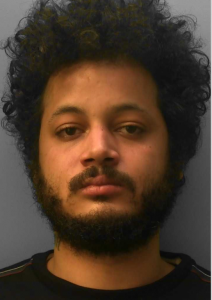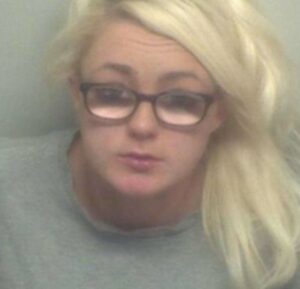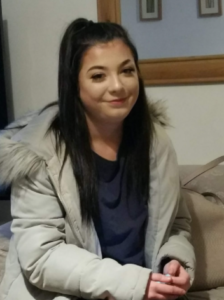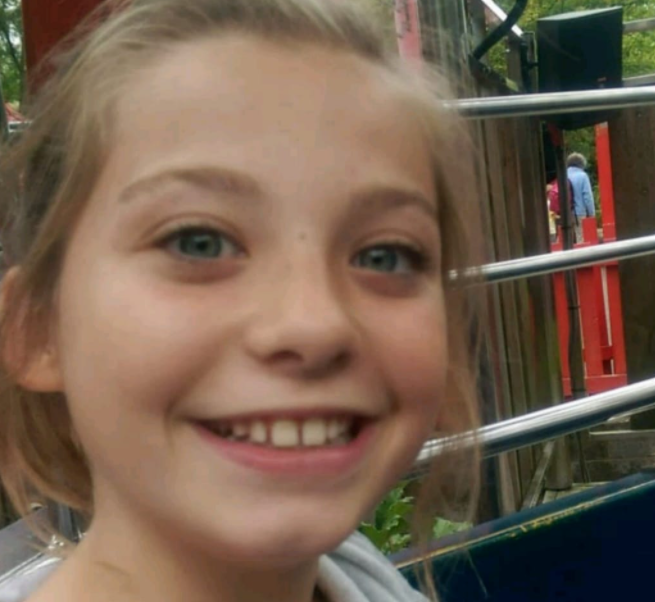A vulnerable girl died from a drugs overdose in a basement flat in Hove just weeks after her 17th birthday and shortly after moving into a new home in Brighton.

Sophie Read, was living in supported lodgings in Hollingdean Terrace, Brighton, where she had been placed by West Sussex County Council social workers.
The teenager – described as likeable, caring and hard-working – was found “unresponsive” on a sofa the morning after she went to stay with her new boyfriend who had rented the flat through Airbnb.
She drank vodka and told a friend – in a long phone call a few hours before she was found – that she had taken some of her boyfriend’s heroin.
Post-mortem tests revealed that she died from a combination of alcohol, heroin and cocaine toxicity at the flat in St Aubyns in Hove. She was not known for taking hard drugs.
Her boyfriend, Reis Forde, also known as Rex, has since been jailed for four years for drug dealing, including heroin and cocaine.
The offences were not related to Sophie’s death but one – involving cocaine – led to his arrest in Sophie’s home town of Worthing just three weeks after she died.
The offences also included drug dealing – heroin, cocaine and cannabis – in Brighton on another occasion.
Forde told Brighton and Hove Coroner’s Court that he tried to resuscitate Sophie – and, in evidence given by video link from prison, Forde admitted not calling an ambulance.
The coroner Karen Henderson said today (Friday 18 March): “Mr Forde did not undertake any meaningful (resuscitation) and did not phone 999 as he should have done.”
The basement flat appeared to have been cleared of anything that might have helped detectives to understand how Sophie died.
Dr Henderson said: “There was no evidence in the rental apartment of drugs or drug paraphernalia after Mr Forde absented himself from the property.
“I am satisfied that it is more likely than not that Mr Forde was the source of the drugs that … directly caused her death.”

Detective Sergeant Jemma Paterson told the inquest, held at the Sussex County Cricket Ground, in Hove, about the morning when Sophie died – Tuesday 25 February 2020.
At about 7.30am Forde contacted Sinead Doyle, his ex-girlfriend, also known as Sinead Lillywhite-Doyle. She reached the flat in Hove about an hour later, having travelled by taxi from her home in Worthing.
She told the four-day inquest that she called an ambulance. The 999 call was made at 8.36am. Doyle also told police that she had spent the night at the flat.
Forde was arrested on suspicion of supplying the drugs that killed Sophie. Both Doyle and Forde were arrested a few months later on suspicion of conspiring to pervert the course of justice.
The inquest was told that evidence from security cameras, mobile phones and phone masts differed from the accounts that the pair gave when they were interviewed immediately after Sophie’s death.
Neither has been charged with any offence relating to Sophie’s death or relating to the false evidence.

On the night when Sophie stayed with Forde, the inquest was told that she should have been reported missing by OwnLife, the residential care company running the hostel where Sophie was living.
The coroner said that Ownlife “did nothing … for reasons that are unclear”, adding: “This was a significant lapse of care and did not adhere to the safety plan that was in place for Sophie.
“Attempts should have been made to contact Sophie. And further exploration was needed as to who she was staying with – and where – and a missing person’s report should have been filed as a matter of course.”
Dr Henderson did not believe that the lapse was a significant contributory factor in Sophie’s death.
Sophie’s grandfather Peter Reeve told the inquest: “She was a beautiful girl. She was loyal. And a proper teenager.”
She was hard-working, holding down two jobs at one point, he said, and “she was a really caring girl” but she missed her late father Scott Read, who had died a few years before.
And she struggled with “curfews”, not least after falling in with a crowd of people who used to hang around drinking.

The coroner praised the three professionals who probably worked most closely with Sophie, saying that, although social workers often got a bad press, they had been exemplary.
One of them, Clare Harvey, from West Sussex County Council, told the inquest that Sophie was “a ray of sunshine”, adding: “She was a very funny girl. She was delightful.”
Mel Vigar, from Barnardo’s, said: “She was amazing. She could be challenging. She was full of personality, quick-witted and very loyal. She just had a lovely nature. She was very compassionate.”
Bridie Garnham, who also worked for West Sussex County Council, said: “She was amazing. She was an absolute joy to work with. She was engaging. She pushed a few buttons at times and pushed the boundaries.
“There were real concerns about the trauma that she experienced as a child – and the people she thought were friends but who weren’t really her friends.
“We were really worried about how easily she was influenced … She was an amazing person and we really miss her.”
After the inquest, Natalie Reeve said that she was “proud and honoured” to have been Sophie’s mum and was heartbroken by her death.
She added: “I will always remember her smile and her laugh and her generous attitude to so many people. I find it a great comfort to know that she made such a huge impact on so many people’s lives.”
She thanked her solicitor Sefton Kwasnik, from BPS Law, for representing her although her application for legal aid was rejected.
The coroner recorded a narrative verdict.










another wasted life and my heart goes out to her family. I obviously know nothing of the difficulties she had in her early life but it seems she needed more support than what was being offered in order to tackle her demons.
Such a beautiful young girl who has had her life taken away from her. Four years is not a long enough sentence as this creep has in effect murdered her and will be out in two years looking no doubt for the next person her can lure into his evil, drug dealing world.